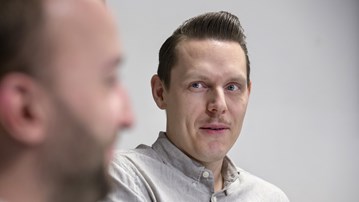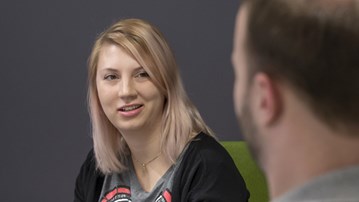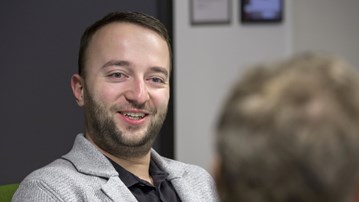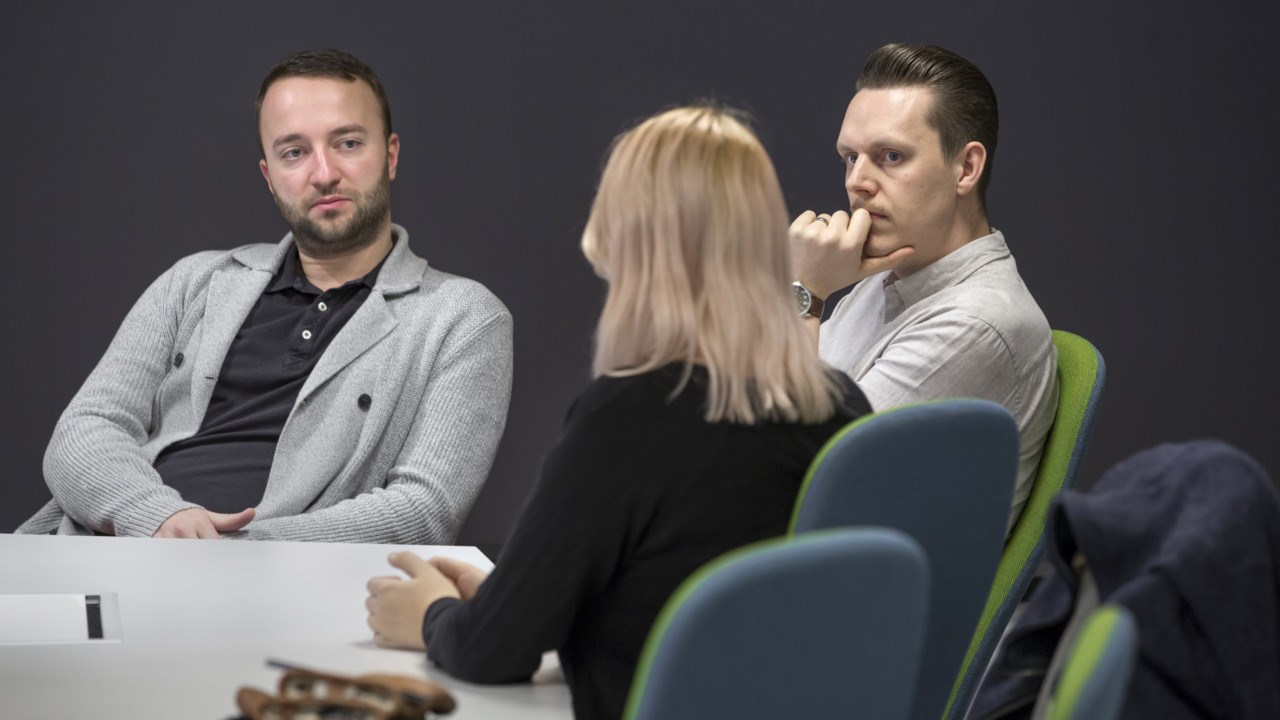Per Boström, doctoral student in language studies, linguistics
"I'm working on a dissertation in Nordic languages focusing on the word love in spoken Swedish, love in metaphors. I started my doctoral studies in 2012, but I've been on parental leave and am active in an association of doctoral candidates, which has taken its time. I'm hoping to complete my doctorate in 1.5 years."






